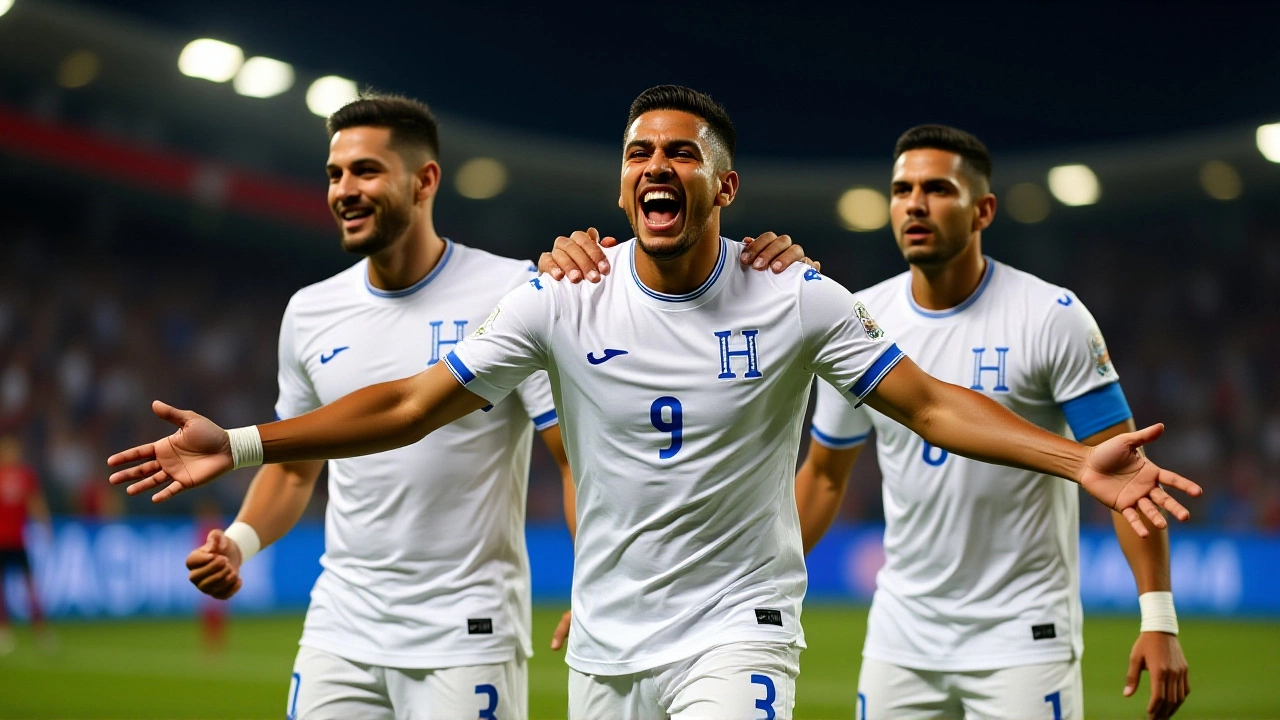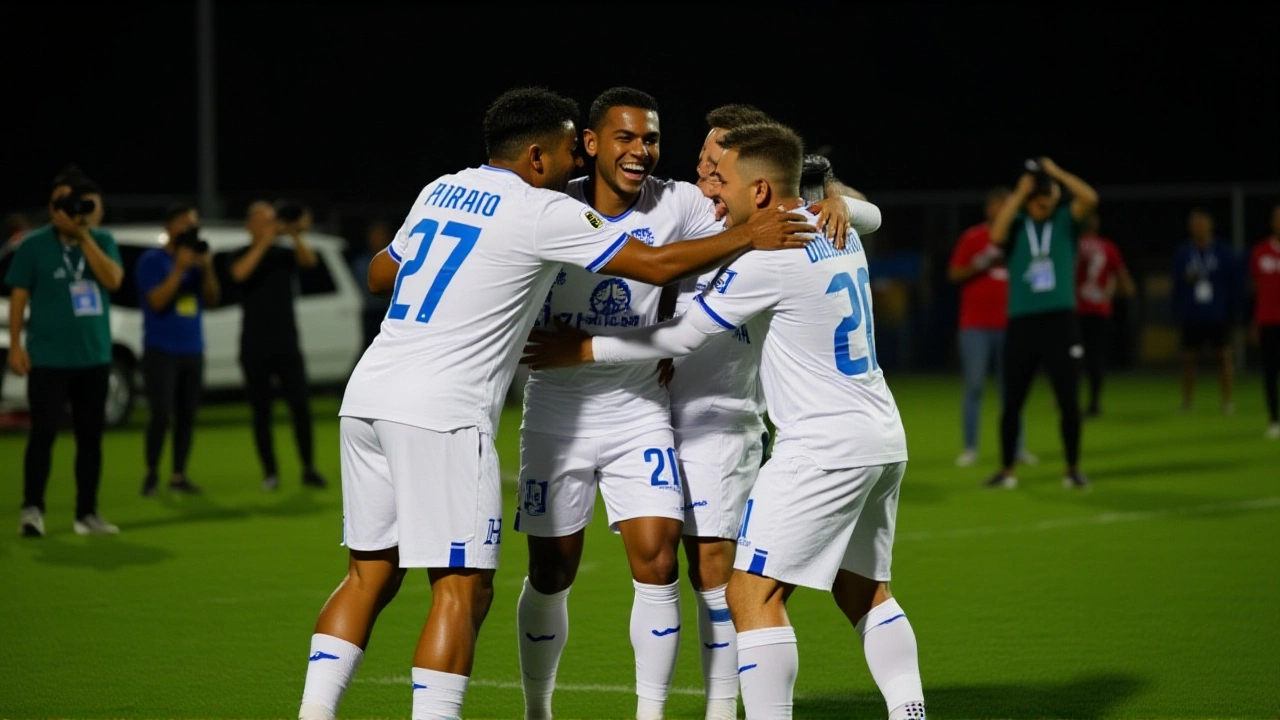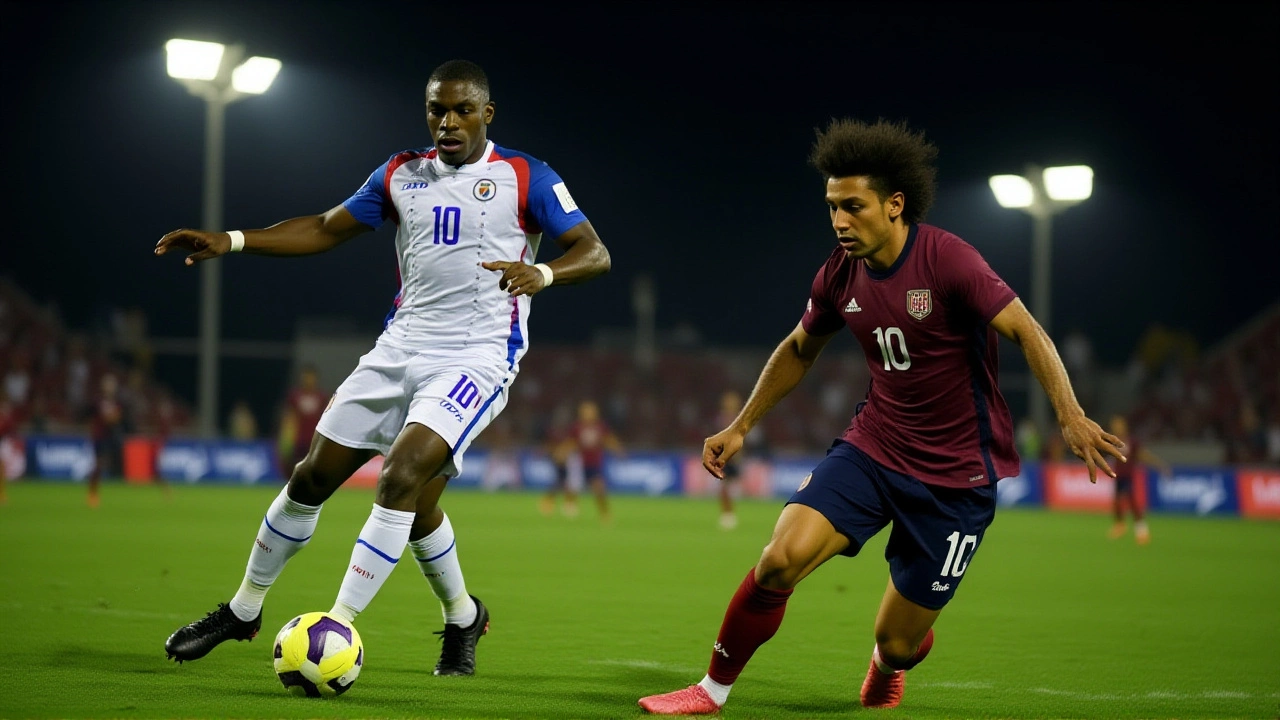Haiti Qualifies for World Cup for First Time in 50 Years with 1-0 Win Over Costa Rica
The roar that echoed through the streets of Port-au-Prince wasn’t from a parade—it was from a nation finally breathing again. On November 13, 2025, Haiti national football team, known as the Grenadiers, stunned the football world with a 1-0 victory over Costa Rica at Estadio Ergilio Hato in Willemstad, Curacao. The goal, a clinical finish by 30-year-old forward Frantzdy Pierrot in the 44th minute, wasn’t just the match-winner—it was the final nail in a 50-year coffin. Haiti had done it: they were going to the 2026 FIFA World Cup. For the first time since 1974.
A Nation That Couldn’t Host, But Couldn’t Be Silenced
Haiti’s journey to this moment was anything but conventional. With gang violence rendering their own stadiums unsafe, the Grenadiers had played every "home" match of the CONCACAF qualifiers on neutral soil. Curacao became their temporary home. Willemstad, a Caribbean island known for its colorful Dutch colonial architecture, became the unlikely epicenter of Haitian football pride. The Estadio Ergilio Hato, usually buzzing with Curaçaoan fans, was filled with red and blue—Haiti’s colors—on this night. Thousands of Haitians in the diaspora flew in. Others watched from makeshift screens in tent cities, where electricity was scarce but hope wasn’t."They played like men with nothing left to lose," said Jean-Claude Bélizaire, a former Haitian international turned commentator, speaking from Miami. "They’ve been told for decades that football can’t change anything here. But tonight? It changed everything."
The Match That Broke the Curse
The final group standings in CONCACAF Third Round Group C were tight: Honduras finished top with 8 points and a +3 goal differential, while Haiti, also with 8 points, edged out second place on goal difference (+1). Costa Rica, a three-time World Cup veteran (2014, 2018, 2022), limped out with 6 points. Their elimination was as shocking as Haiti’s rise.Pierrot’s goal came from a well-worked move: a diagonal pass from midfielder Jean Jacques, a flick from forward Bellegarde, and then—pure instinct. Pierrot, unmarked in the box, volleyed the ball past goalkeeper Keylor Navas with a left foot that had carried him through leagues in France, Turkey, and the MLS. It was his 33rd goal for Haiti, a national record. The stadium fell silent. Then, chaos.
Costa Rica had chances. A penalty appeal in the 68th minute was waved off. A header from Bryan Ruiz clanged off the post. Haiti’s defense, led by captain Lacroix and goalkeeper Placide, held firm under pressure. The final whistle blew after 90+6 minutes. No one moved. Then, the tears came.

Underdogs Against All Odds
The betting markets had seen it coming—sort of. Haiti entered the match as +321 underdogs. A $100 bet would net $421. The over/under was set at 2.5 goals. The under won. One goal. One moment. One legacy."No one expected this," said Carlos Quirós, Costa Rica’s substitute who was pulled at the 54th minute. "We thought we had this. But Haiti? They played like they were playing for their lives. And maybe they were."
That’s the unspoken truth. In Haiti, football isn’t just sport. It’s escape. It’s dignity. It’s proof that something beautiful can still grow in the cracks of a broken system. While gangs control 80% of Port-au-Prince’s streets, and the government struggles to pay teachers, Haitians danced in the rubble of collapsed buildings, sang the national anthem through megaphones, and lit candles in front of murals of Pierrot.
What This Means for Haitian Football
The 2026 FIFA World Cup will be held across the United States, Canada, and Mexico. Haiti’s qualification opens doors: funding, youth academies, international sponsorships. The Haitian Football Federation has already signaled plans to build a permanent training center in the north, away from the violence. FIFA has pledged to review Haiti’s hosting status for future qualifiers."This isn’t just about one team," said Michel D’Aubuisson, a sports sociologist at the University of Port-au-Prince. "It’s about rebuilding identity. When a child sees Pierrot on TV and thinks, ‘I can do that too,’ that’s the real victory."
For the first time in half a century, Haiti’s name will be on the World Cup draw. The Grenadiers will face giants. But they’ve already beaten the odds.

What’s Next?
Haiti’s World Cup group stage opponents won’t be drawn until December 2025. But preparations are already underway. The national team will hold a training camp in Florida in January. Youth tournaments are being launched in every department. And in a country where the average income is under $1,500 a year, ticket sales for the World Cup are already surging—through diaspora networks and digital crowdfunding."We don’t have much," said 12-year-old Kervens Jean, who painted his face red and blue and walked 12 miles to watch the match on a neighbor’s TV. "But now? We have a team that believes. And that’s enough."
Frequently Asked Questions
How did Haiti qualify for the 2026 World Cup despite playing all home matches abroad?
Haiti’s home matches were relocated to Curacao due to security concerns, but FIFA rules allow neutral venues for qualifiers if the home nation cannot host safely. Haiti earned 8 points in Group C (2 wins, 2 draws, 1 loss), finishing second behind Honduras on goal difference (+1 vs. +3). Their 1-0 win over Costa Rica was decisive, as it eliminated a stronger team and secured their spot outright.
Why is this qualification such a big deal for Haiti?
Haiti last qualified for the World Cup in 1974, making this a 50-year drought. For a nation facing extreme poverty, political instability, and gang violence, the team’s success has become a rare unifying symbol of national pride. The win sparked spontaneous celebrations across the country—even in areas controlled by armed gangs, where people turned off the violence to watch the match.
Who is Frantzdy Pierrot, and why is he so important to this team?
Frantzdy Pierrot, 30, is Haiti’s all-time leading scorer with 33 international goals. He’s played professionally in France, Turkey, and the U.S., bringing elite-level experience to a squad with limited resources. His goal against Costa Rica was his 12th in World Cup qualifying, and his composure under pressure made him the emotional core of the team. Many Haitians now call him "the man who brought hope home."
How did Haiti’s performance compare to past World Cup qualifiers?
In 1974, Haiti qualified by winning their group with a 1-0 win over El Salvador. Since then, they’ve come close multiple times—most notably in 2002, when they lost a playoff to Trinidad and Tobago. This time, they outlasted Costa Rica, a team that had qualified for the last three World Cups. Their defensive discipline and mental toughness marked a clear evolution from past campaigns.
What impact will this have on Haitian youth football?
The Haitian Football Federation has announced a $2.3 million initiative to build 15 new grassroots academies in rural areas, funded by FIFA’s development program and diaspora donations. Early signs show a 300% spike in youth registrations since the win. Coaches report children asking to be "the next Pierrot," and schools are adding football to their curriculum. This isn’t just a team—it’s a movement.
Will Haiti ever host a World Cup qualifier again?
FIFA has pledged to reassess Haiti’s hosting capabilities by 2027, contingent on security improvements. While full-scale hosting remains unlikely in the near term, temporary matches in safer northern cities like Cap-Haïtien are being explored. The goal is to bring international football back to Haitian soil—not just as a spectacle, but as a symbol of recovery.






